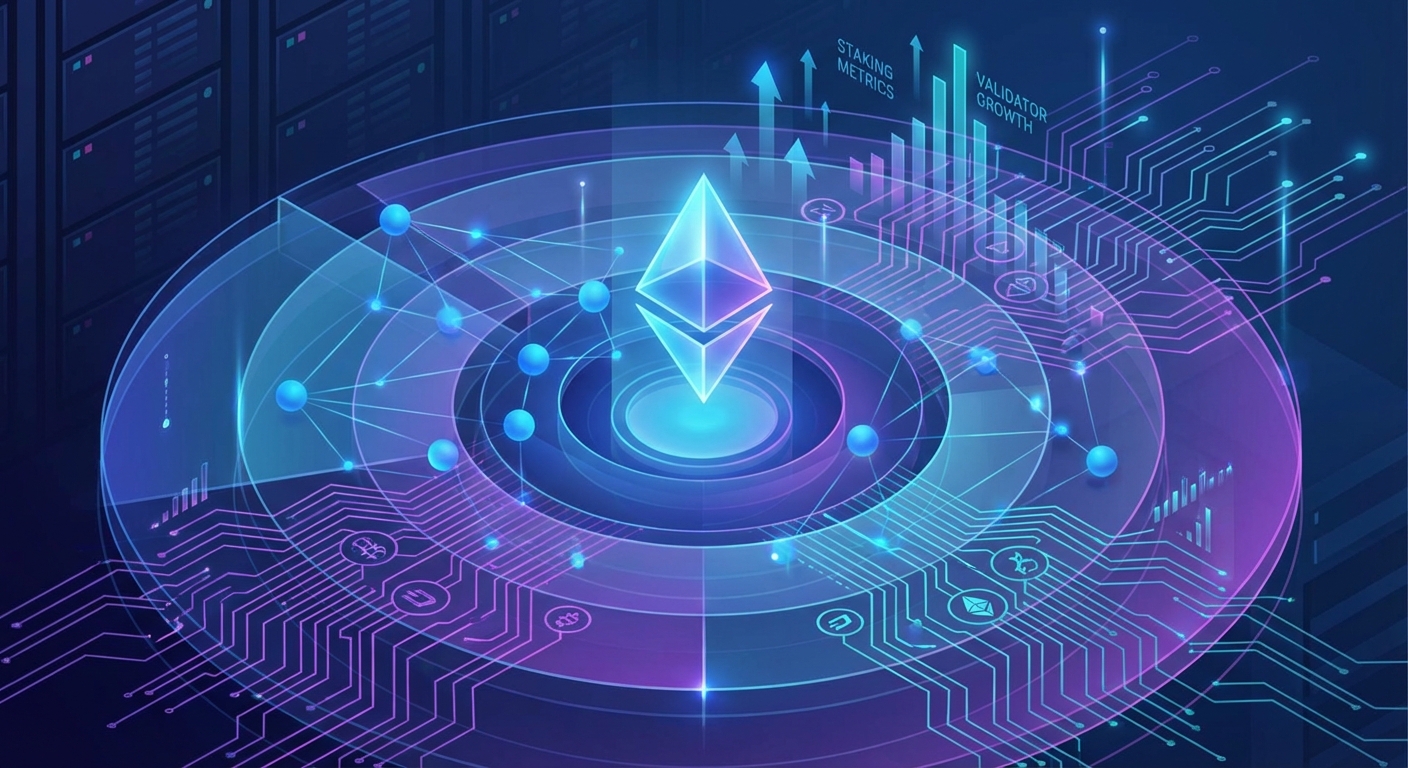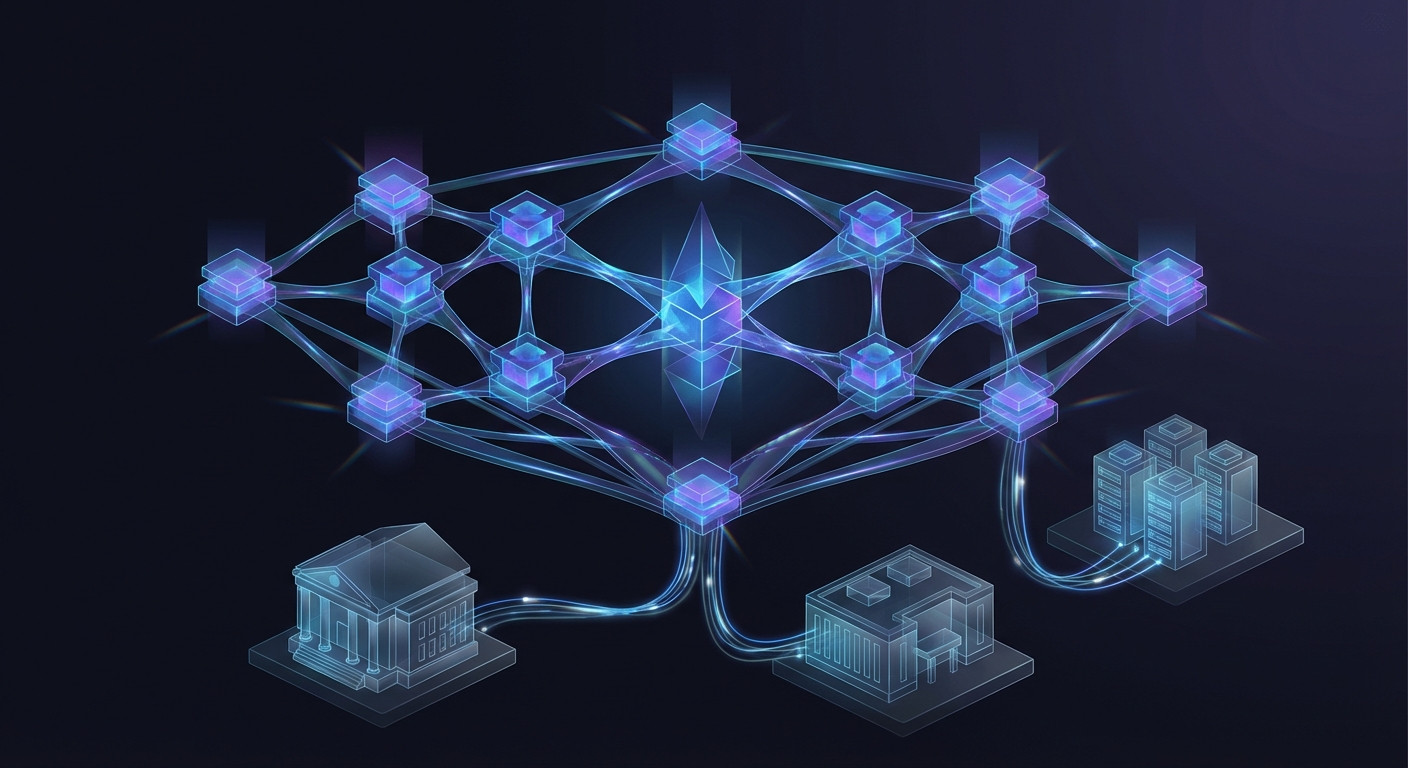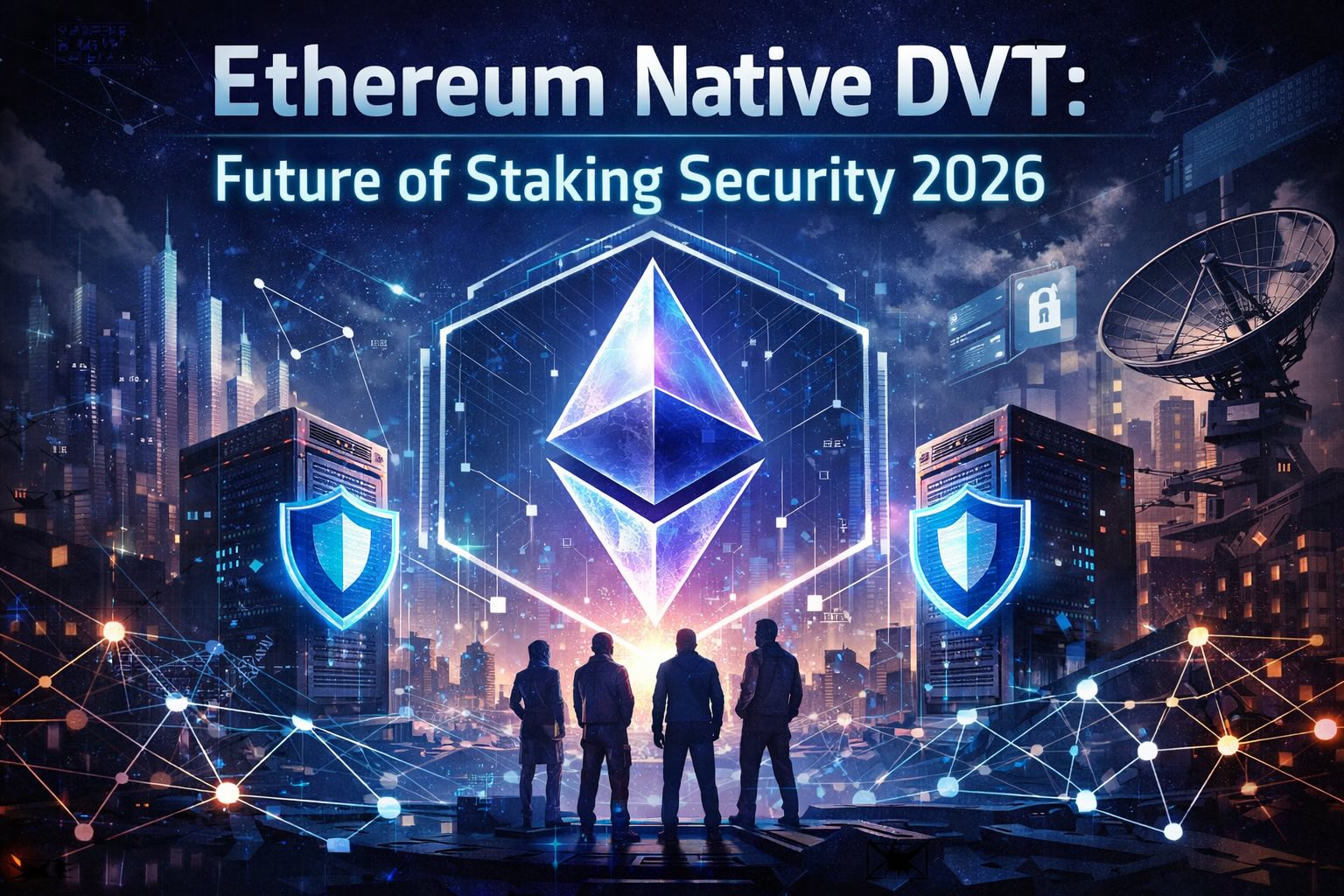Ethereum's New "Dencun" Update - What You Need to Know

Key Takeaways
- Ethereum's upcoming Dencun upgrade aims to significantly improve scalability and reduce gas fees
- Changes include proto-danksharding and other EIPs to boost throughput on the execution and consensus layers
- The upgrade sets the foundation for future scaling upgrades under Ethereum's roadmap
Sending money or buying an NFT can cost $50+ in gas on Ethereum. With tens of thousands of users competing for limited space per block, congestion and high fees severely limit activities. The upcoming Dencun upgrade brings much-needed relief by improving Ethereum's capacity.
This article explains the key components powering Dencun and what users can expect. Read on to learn how proto-danksharding and other changes will position Ethereum for the future with increased scalability.
What is the Dencun upgrade?
The Dencun upgrade combines upgrades to two key layers of Ethereum - the execution layer and the consensus layer. It massively increases Ethereum's capacity to over 100,000 transactions per second and decreases the fees users pay to use the network by 10-100 times.
By making Ethereum much faster, cheaper, and more scalable, Dencun paves the way for global adoption. It's scheduled to launch in early 2024 after extensive testing by Ethereum's developers.
The Dencun upgrade is composed of two simultaneous upgrades - Cancun for the execution layer and Deneb for the consensus layer:
A. Execution Layer Upgrade (Cancun)
The execution layer handles transaction processing and houses the Ethereum Virtual Machine (EVM). The Cancun upgrade focuses on EVM improvements to scale transaction throughput.
It includes 5 key EIPs:
- EIP-4844 implements proto-danksharding by allowing rollups to store more data directly on Layer 1. This expands Ethereum's capacity to ~100,000 transactions per second.
- EIP-1153 introduces a new pricing model to lower gas fees for storing data.
- EIP-4788 enhances communication between rollups and Layer 1 to improve security.
- EIP-5656 adds a new MCOPY opcode to copy memory more efficiently.
- EIP-6780 restricts use of the SELFDESTRUCT opcode.
Combined, these EIPs aim to increase throughput and decrease transaction costs for users.
B. Consensus Layer Upgrade (Deneb)
The consensus layer handles how network nodes reach agreement on the state of transactions and contracts.
The Deneb upgrade includes two main changes:
- Upgrades staking logic to increase robustness and long-term sustainability of the Proof-of-Stake system.
- Introduces native crypto libraries to facilitate adding privacy features in future upgrades.
Though less user-facing, these consensus updates provide vital security and scalability improvements.
C. Key Goals: Scalability, Lower Fees, Increased Throughput
The primary goal of Dencun is boosting Ethereum's scalability to support more users and use cases.
Current limits on transactions per second directly contribute to congestion and high gas fees. Dencun tackles this via:
- Proto-danksharding to grow capacity limits.
- EIP-1153 changing data costs to lower user fees.
- Consensus improvements ensuring agreement keeps pace.
With an expected 100x transaction throughput after Dencun, Ethereum moves closer to its Roadmap for supporting global scale. And by making transfers, trades, and transactions cheaper, more benefits accrue to end users.
You can look forward to faster confirmations, lower gas fees, and engaging with more DeFi and dApp services on an enhanced Ethereum platform.
Main Components and Changes
Let's dive deeper into the key upgrades powering Dencun's improvements:
A. Proto-danksharding
Proto-danksharding introduces the concept of "data blobs'' to enhance scalability. It lets roll ups store large sets of data directly on Layer 1 instead of generating individual transactions.
This exponentially grows Ethereum's data bandwidth from 10-20 MB per block to over 5,000 MB per block. With this 50,000% capacity boost, the network can handle 100,000+ transactions per second.
Storing bulk data as blobs allows rollups to consolidate transactions off-chain and post them far more efficiently. This is all handled transparently, reducing fees and congestion even as usage grows.
B. Other Key Cancun EIPs
Beyond proto-danksharding, three other EIPs improve functionality:
- EIP-4844 - Introduces proto-danksharding for data blobs
- EIP-1153 - New pricing model for data storage to cut gas costs
- EIP-4788 - Enables rollup requests for batch data from layer 1. Fixes security risks.
Combined, these three proposals reinforce proto-danksharding and its benefits to users. EIP-1153 for example cuts data storage fees by ~10x, reducing overhead for roll ups and fees passed to users.
C. Complementary Consensus Layer Changes
While less user-facing, Deneb makes key upgrades to Ethereum's Proof-of-Stake backbone:
- Improves reward mechanics for validators to promote long-term platform stability.
- Enables easier integration of privacy techniques like zk-SNARKs.
These consensus rules ensure Ethereum can scale responsibly while providing confidentiality options.
With robust foundation upgrades in Deneb and expanded throughput from Cancun, the two halves reinforce each other to enable Ethereum's climb to ~100,000 transactions per second.
Expected Impacts and Benefits
By improving scalability, security, and affordability, Dencun unlocks new potential for users and decentralized apps on Ethereum:
A. Higher Transactions Per Second, Increased Throughput
Dencun sets the stage for Ethereum to scale to over 100,000 transactions per second - a 100x gain. This expanded capacity relieves network congestion even with growing usage.
You can expect faster confirmation times for transfers, trades, and interactions. Activities that take minutes or get stuck during peaks will complete in seconds.
B. Lower Gas Fees for Users
As congestion drops, so do transaction fees. Proto-danksharding and EIP-1153's data storage changes significantly reduce operating costs for rollups. These savings get passed to users.
Sending ETH or using a dApp can cost $20+ today. With Dencun, fees are expected to decrease by 10-100x - down to pennies or less for common transactions.
C. More Storage and Capacity for Rollups
Rollups relying on Ethereum gain more runway to scale. Dencun's data blobs offer 50,000% more bandwidth to batch transactions off-chain. This translates to fast-improving rollup services.
It also lets roll ups specialize for different verticals like payments, DEXs, NFTs, and gaming. More innovation benefits end users.
D. Enhanced Security
By implementing best practices like restricting SELFDESTRUCT and improving staking rewards, Dencun enhances protection against exploits and long-term sustainability.
Users can transact with more peace of mind knowing Ethereum has upgraded safeguards against threats as adoption accelerates.
E. Foundation for Future Upgrades
Dencun cements key infrastructure for realizing Ethereum's ambitious roadmap. Along with boosting capacity and lowering costs today, it lays groundwork for upgrades like danksharding that will eventually scale the network to millions of transactions per second to rival payment cards and central networks.
The impact expands far beyond faster and cheaper ETH transfers and trades today. Dencun puts Ethereum's ecosystem on track to support global consumer and enterprise usage.
Implementation Timeline
Let's explore the rollout schedule for Dencun to understand when benefits start accruing to Ethereum users:
A. Testing Ongoing on Devnets
The upgrade is currently undergoing rigorous testing on development environments to ensure smooth functioning. Groups like the Ethereum Cat Herders organize these devnet trials.
Testing verifies Dencun's components work properly in isolation and together:
- Client teams test component interactions
- Smart contract developers confirm compatibility
- Security experts audit for vulnerabilities
Hundreds of developers collaborate to harden Dencun pre-launch. This reduces risk when upgrading Ethereum's $200 billion mainnet.
B. Targeting Mainnet Deployment in Q1 2024
If testing finishes successfully, developers aim to orchestrate a mainnet upgrade in Q1 2024.
Upgrades typically happen on a Wednesday to avoid disrupting exchanges. The timeline aims to provide sufficient notice to ecosystem partners like Infura, Ledger, Metamask, and others.
While delays are possible if issues emerge, Ethereum developers are incentivized to ship on schedule, so they can focus resources on subsequent roadmap items.
C. What a "Hard Fork" Entails
Dencun activates via a "hard fork" combined upgrade to Ethereum's execution and consensus layers. A hard fork handles version upgrades not backwards compatible with older software.
This means users and partners must run upgraded client software to maintain sync with the new chain rules and continue transacting without issues:
- Node operators switch upgraded clients like Geth, Besu, Erigon etc.
- End users update MetaMask, Ledger, Coinbase Wallet and other wallet apps.
- Participation is opt-in. Legacy chains may continue on unsupported.
With coordination in the developer community on devnets thus far, a clean mainnet upgrade should transpire if all goes as planned.
Potential Considerations and Risks
While extensive testing mitigates issues, Dencun's complexity warrants discussing possible integration risks:
A. Smooth Integration with Minimal Network Disruption
A complex change like Dencun always poses some integration risk despite extensive QA. Bugs causing network instability or degraded performance are rare but remain possibilities.
If any consensus failures emerged after deployment (unlikely), it could temporarily disrupt chain continuity. The community may need to coordinate fixes and potentially rollback changes as a last resort.
Still, given the layered devnet testing strategy, confidence runs high that Dencun will integrate smoothly without incident at the mainnet level. Ethereum has hardened this process over successive upgrades.
B. Smart Contract Compatibility
Dencun doesn't intentionally break existing code. But smart contracts with dependencies on deprecated functions like SELFDESTRUCT may suffer impaired functionality.
While contract developers have been given ample notice to remove deprecated aspects, some legacy DApps could get stranded temporarily post-upgrade until patches deploy.
This remains a modest risk though given tools to identify compatibility issues. Most teams will fix affected contracts pre-upgrade.
C. Community Feedback
A minority of miners and community members resist changes that temporarily impact familiar workflows, reduce gas fee revenue, or present short-term uncertainty.
Critics deterring a successful Dencun upgrade is improbable. But there could be pockets of negative feedback post-deployment around things like temporarily reduced mining revenue.
Still, with extensive planning and education beforehand, most stakeholders understand Dencun's immense value. Support should vastly outweigh objections.
The brightest technological changes often meet initial resistance. But Dencun sets up Ethereum for sustainable success - and demonstrated resilience to upgrades solidifies faith in the network's direction.
Implications for Developers and ETH Holders
Beyond improving end-user experiences, Dencun unlocks new innovation potential:
A. Better Scaling Will Enable New Use Cases
With 100x higher throughput, developers can build products and services challenging to sustain today - like complex Web3 games and high-frequency trading systems.
Previously unusable from congestion and fee perspectives, these emerging use cases now gain viability given new network headroom.
We should see an explosion of next-generation Ethereum products leveraging greater speed, storage, and affordability.
B. Upgraded Ethereum Platform Benefits Developers
Just as Apple developers rally around new iOS releases with better tools, Ethereum developers gain empowerment from foundational upgrades like Dencun.
Improvements make building Web3 experiences more accessible:
- Proto-danksharding saves rollup costs to bootstrap ideas
- More predictable, lower gas fees simplify pricing models
- Added storage alleviates data constraints
- Enhanced composability between chains unlocks creativity
Developers translate platform advancements into user benefits - establishing a positive feedback loop where upgrades enable innovations to utilize them.
C. Value Proposition Improvements for ETH Holders
While users obviously gain from usability improvements, ETH holders and stakers uniquely benefit as interest and traffic pick up:
- Greater network utility pumps token value based on Metcalfe's Law
- Higher transaction fees get distributed as staking yields
- Burn mechanisms from EIP-1559 raise scarcity
Rewards for securing and governing Ethereum's blockchain economically link holders and stakers to platform growth.
As architects for mass adoption, holder interests align strongly with empowering builders and users through scalability boosts like Dencun.
Rising tides from upgrades lift all boats in the rich, interconnected Ethereum ecosystem.
Final Thoughts
Ethereum's community recognizes that realizing a globally-accessible Web3 requires proactive scaling solutions today. Dencun delivers on expectations to overcome current limitations in transaction throughput and fees hindering mainstream adoption.
By coordinating simultaneous upgrades to the execution and consensus layers through protocol improvements like proto-danksharding, developers address pressing network constraints from angles like:
- Growing per-block transaction count
- Optimizing Layer 2 rollup integration
- Reducing smart contract gas costs
- Adding staking incentives for security
The ambitious roadmap doesn't stop at Dencun either. But it represents a crucial milestone, with estimations indicating post-upgrade capacity exceeding 100,000 transactions per second and 10-100x lower fees.
Users, builders, investors and other community members all win through efforts scaling Ethereum as the high-performance settlement layer underpinning Web3's decentralized future.
While technical at times, improving global accessibility motivates ecosystem collaboration towards milestones like Dencun. The tide lifts all boats - now over 50,000 TPS higher!
Disclaimer: The information provided in this blog is for informational purposes only and should not be considered financial or investment advice. Readers should research and consult with a professional before making investment decisions.






